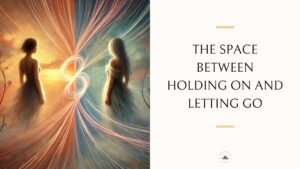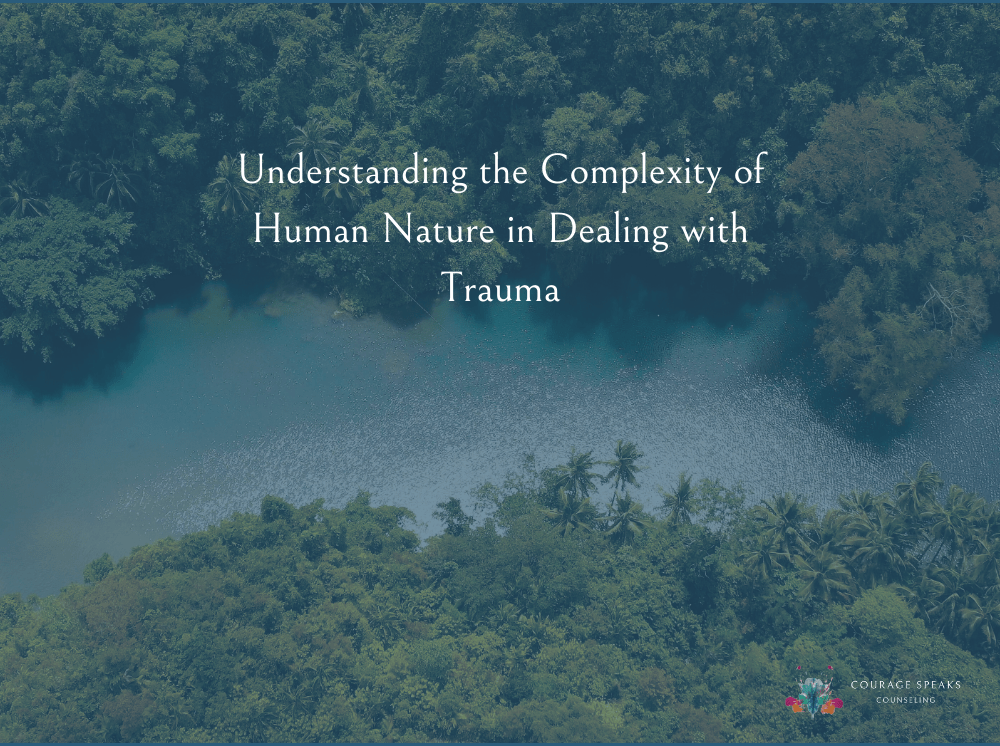Leo Tolstoy’s words offer profound insights that can resonate deeply with anyone who has experienced complex trauma:
“One of the commonest and most generally accepted delusions is that every man can be qualified in some particular way— said to be kind, wicked, stupid, energetic, apathetic and so on. People are not like that. We may say of a man that he is more often kind than cruel, more often wise than stupid, more often energetic than apathetic or vice versa; but it could never be true to say of one man that he is kind or wise, and of another that he is wicked or stupid. Yet we are always classifying mankind in this way. And it is wrong. Human beings are like rivers; the water is one and the same in all of them but every river is narrow in some places, flows swifter in others; here it is broad, there still, or clear, or cold, or muddy or warm. It is the same with men. Every man bears within him the germs of every human quality, and now manifests one, now another, and frequently he is quite unlike himself, while still remaining the same man.”
The Problem with Labels
If you’ve experienced complex trauma, you may have been labeled in ways that oversimplify and misrepresent who you are. Words like “troubled” or “difficult” can stick with you and shape how you see yourself and how others see you. However, these labels don’t capture the full complexity of who you truly are, as Tolstoy reminds us.
The Changing Nature of Human Behavior
Tolstoy’s comparison of humans to rivers highlights that our behaviors and traits are not fixed. Just as a river changes its course, speed, and appearance, you also show different qualities at different times. This is especially important to remember when considering your experiences with trauma, as your behaviors are often responses to your past rather than permanent traits.
How Trauma Affects Identity
Trauma can deeply influence your sense of self, causing you to show traits that might not reflect who you truly are. For example, if you experienced neglect in childhood, you might seem detached or unemotional now. Recognizing these behaviors as coping mechanisms rather than fixed traits can help you see yourself with more empathy and understanding.
Embracing All Aspects of Yourself
It’s crucial to acknowledge the full range of qualities within yourself. By doing so, you create space for healing and growth. This helps you understand that your responses to trauma do not define you but are part of your broader human experience.
Moving Beyond Limiting Labels
One of the most powerful aspects of healing from trauma is moving beyond the limiting labels that you or others have placed upon you. By fostering self-awareness and encouraging a more nuanced understanding of your behaviors, you can redefine your identity. This involves recognizing moments of kindness, wisdom, and strength alongside the more challenging aspects of your experiences.
Tolstoy’s reflections on human nature provide valuable lessons for anyone dealing with complex trauma. By rejecting simplistic labels and embracing the complexity of your behavior, you can offer yourself more compassion and support.
Recognizing the fluid nature of human identity allows for deeper healing and personal growth. Ultimately, understanding that “human beings are like rivers” can lead to more meaningful self-connection and breakthroughs, reminding you that you have the potential for change and transformation.
Embracing Shadows, Illuminating Hope,
Chelsey Fjeldheim, LCSW
Empowering Souls on the Path of Healing
Copyright © 2024 Chelsey Fjeldheim, Courage Speaks Counseling




